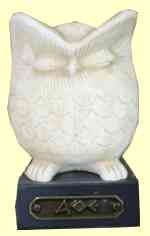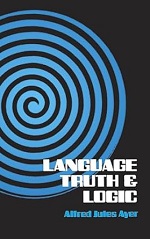
Philosophisch-ethische Rezensionen
(Erscheinungsdatum der rezensierten Bücher: 20. und 21. Jahrhundert)
- Aktuelle Rezension
- Rezensionen nach Autor
- Neueste Rezensionen
- Gästebuch
- Mail an Rezensenten
- Philosophenraten
Alfred Jules Ayer: Language, Truth and Logic, New York 1952, 2. Auflage
The book serves the reader with what he is expecting from a real classical of logical positivism. Substances, ideas, terms with no link to factuals? Flim-flam. Methapysics is nonsense. What cannot be empirically verified aside from analytic propositions (which are but mere tautologies) can't be said as being true. Theologians are given a short shrift, too. God is transcendent to the world? Then he is empirically not verifiable, nonsense! Ayers criticism on idealism or monism or rationalism: He is not in need of many lines of text to prove their core propositions as nonsenical, to his mind. That is quite entertaining and facetious, although I doubt if this narrow-guage philosophy will do full justice to the complexity of the world, of life and of human being. This is, to my opinion, especially clear when the author explains his opinion to ethics: Scientificial is only the descriptive ethics, normative ethics can't be verified as universally valid, it's mere emotive. But I do not doubt that this kind of philosophy delivers quite accurate fruits, although with a quite limited perspective. Nevertheless, this philosophical approach has broadened my horizon.
Thank you Mr. Ayer.
Jürgen Czogalla, 06.09.2009

![]()